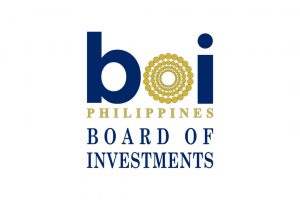Digital payments now make up over 40% of retail transactions, BSP chief says

THE SHARE of digital payments in the total volume of retail transactions in the country is now at over 40% amid a surge in e-wallet accounts, Bangko Sentral ng Pilipinas (BSP) Governor Felipe M. Medalla said.
“If not for the e-wallets, the increase would have been much, much smaller,” Mr. Medalla said in a press conference on Wednesday.
Latest BSP data showed digital payments jumped to 30.3% of the volume of retail transactions in 2021 from 20.1% a year prior as more Filipinos used online channels amid mobility restrictions due to the coronavirus pandemic.
The BSP wants digital payments to make up 50% of all transactions, both in volume and value, by the end of this year. It also hopes to onboard 70% of Filipino adults into the formal financial system this year.
The central bank also wants the country to become a cashless society by 2025.
Meanwhile, the BSP has also opened the registration for the Open Finance PH Pilot initiative that aims to boost collaboration among financial institutions.
The central bank launched the Open Finance PH Pilot on Wednesday in partnership with the World Bank and the International Finance Corp. (IFC). The initiative aims to build financial profiles and credit histories for unbanked Filipinos.
“The BSP will continue to strive for a regulatory environment that promotes the right balance of innovation, competition, and consumer protection. We also remain committed to establishing robust frameworks that protect the interests of all stakeholders,” Mr. Medalla said during the launch event.
“With Open Finance PH, we are taking a big step towards unlocking equal access to financial services for all Filipinos and building a cyber-resilient and open digital economy,” he said.
The Pilot is a voluntary pledge of financial institutions to co-develop an interconnected ecosystem that would allow consumers to take more control over their financial data and to use various financial products and services from different providers.
This is the next phase in the implementation of the Revised Open Finance Roadmap (2023-2027), which lays out the priority actions of the BSP for the adoption of open finance in the country.
The central bank also announced the start of registration for eligible BSP-Supervised Financial Institutions (BSFIs) to participate in the initiative.
This is based on the recommendations of the Open Finance Oversight Committee Transition Group and a sub-working group (Standards Consultation Working Group) that include 19 volunteer financial institutions assigned to review and recommend pilot processes and standards.
BSP Deputy Governor for Financial Supervision Chuchi G. Fonacier said open finance can help improve the delivery of financial services by enabling a more secure exchange of data between institutions.
“First and foremost, open finance can drive digitalization through the adoption of open API (application programming interface), which will enable financial institutions to share data and services in a more secure, seamless and standardized way,” she said.
She added that this could lead to improved efficiency and competition as firms use each other’s strengths and resources.
“Secondly, open finance can enhance cyber resiliency by promoting greater transparency, accountability and consumer protection. By enabling consumers to access and control their financial data, open finance can empower them to make more informed decisions on how their data is used, and who has access to it,” Ms. Fonacier said.
This can also help mitigate the risks of data breaches and cyberattacks and promote greater consumer confidence in the country’s financial system, she said.
“This puts the Philippines on the map when it comes to open finance,” said Jean-Marc Arbogast, IFC country manager for the Philippines. “It positions the country right alongside more advanced markets like Singapore, the United Kingdom, and the European Union, all of whom catalyzed innovation by championing open banking initiatives.” — K.B. Ta-asan




